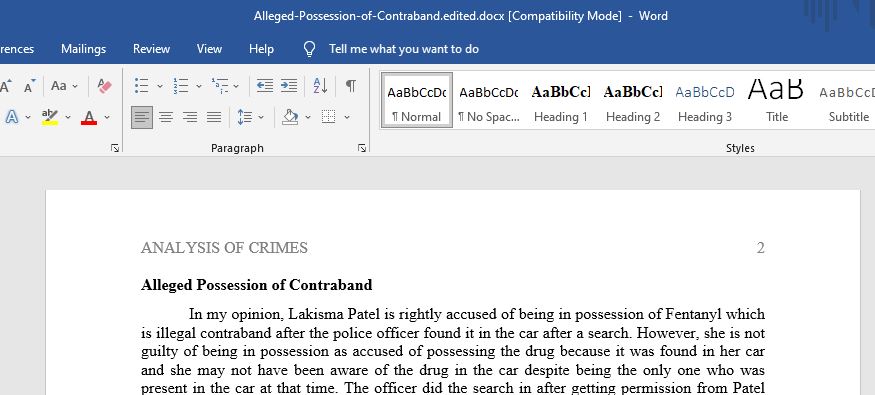Alleged Possession of Contraband and Legalization of Marijuana in Colorado
1. Lakisma Patel is driving a car and is stopped by police for speeding. After issuing Patel a ticket for speeding, the officer asks Patel if there is anything illegal in the vehicle to which Patel responds “maybe, not that I know of”. The officer then asks for consent to search the vehicle and Patel says “Sure, go ahead”. While searching the vehicle, the officer finds a baggie of fentanyl and Patel is charged with Possession of Fentanyl.
a. Is Patel guilty of possession of fentanyl? Why or why not? What facts NOT provided in the fact pattern would you want to know in order to determine if she was or was not in “possession” of the cocaine?
b. What factors are relevant to prove possession in this case and other similar cases involving alleged possession of contraband?
2. In November 2012, voters in Colorado and Washington voted to legalize marijuana for recreational use in contradiction of Federal law (Controlled Substances Act) that prohibits such possession and use. Nine other states have also legalized marijuana. The Supremacy Clause of the US Constitution states that when there is a conflict between state and federal laws, the federal law is the supreme law of the land. In other words, individuals who possess marijuana in those states are violating federal law and can be subject to the federal sanctions set forth in the Act.
How should the federal government deal with legalization of marijuana for recreational use in those states? Should the Federal Government enforce the laws or ignore the violations and allow those states to disregard and violate clearly stated federal law?
Answer preview:
 Word:700
Word:700
